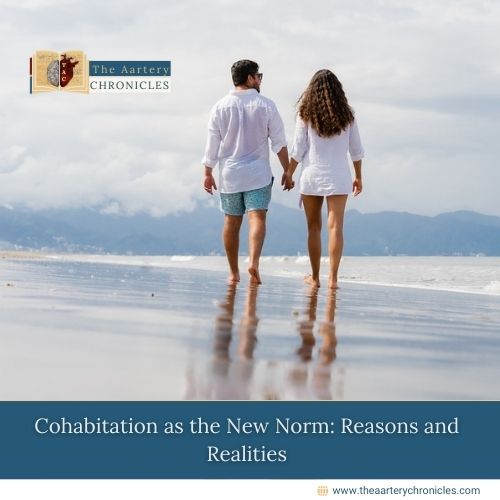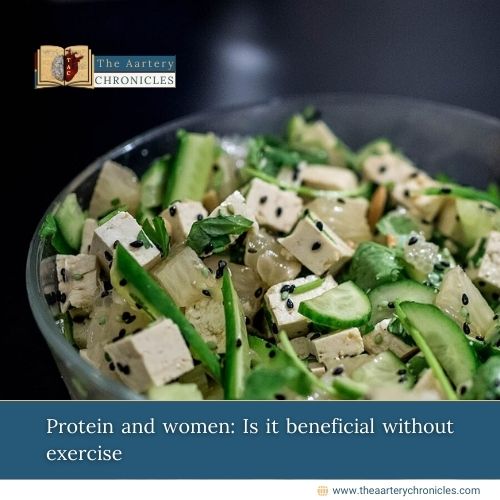

Cohabitation as the New Norm: Reasons and Realities
Introduction
Co-habitation is defined as “the state or condition of living together in a conjugal relationship without being married” as per the Collins English Dictionary. There is a rising trend of cohabiting couples today.
Once upon a time, marriage was the only bond that brought a man and woman together, for life, who lived and raised a family. Cut to today, the young adult generation has a different wavelength/thought process and some prefer cohabiting, as opposed to marriage. Why is the young adult generation preferring cohabiting and not getting married?
The answer is the new generation has tremendous pressure to make a good life for themselves. From education to jobs, there is tough competition and they are always moving ahead at jet speed to get through the day. This leaves them with negligible time, effort, or inclination to invest in marriage.
Reasons For Cohabiting
Certain factors may be the reason for the surge in cohabiting couples.
1. Commitment
The new generation may be commitment-phobic as they have tasted the fruits of financial freedom and security. Their priority is their career, and they are entirely focused on it. They are aware that a fair share of marriages are troubled and unsatisfying. Hence, they are reluctant to invest in a marriage where they may be disillusioned, betrayed, unhappy, or victimized. They are unsure whether their partner will understand that their commitment lies towards themselves first and then towards their partner.
2. Compatibility
Many times, couples choose to cohabit to check whether they are compatible. This makes them aware of the true nature of their partner and tests how they function together as a couple. Are they comfortable? Can they trust each other? Can they adjust to each other? Are they sharing the chores/errands? Are they aware of each other’s feelings? Are they making efforts to strengthen their relationship? Will they be happy together, if married? Will this relationship stand the test of time? These are some of the aspects that will become clearer for the couple. If the couple are uncomfortable cohabiting, they can always end their relationship as no law binds them together.
3. Time
Many couples cohabit so that they can be close to their partner and spend more time together. This gives them the time to know each other better and evaluate where their relationship is heading. This gives them time to be themselves without fearing “what will people say.” They are involved with each other so it is logical that they spend more and more time together.
4. Mindset
Some couples may be divorced and to save themselves from probably another divorce, they may choose to cohabit instead of getting married. On the other hand, there may be couples who have seen marriages break or end in divorce and all the heartbreak / financial instability associated with it, and they may be disillusioned with the very thought of marriage. These couples would rather be in a relationship which gives them their financial and emotional freedom, rather than getting married, sacrificing their freedom and get separated/divorced.
5. Finances
Many couples choose to cohabit to save money whereby it is logical to share the rent and living expenses both, as opposed to living separately and spending individually for their living expenses. This is because they want to save money for their future and pooling resources is a good option. After all, who knows where the relationship leads? If it ends, then they may have to move out and they will need money to meet their personal and living expenses. With the rising costs, it is feasible to have a “Plan B “as far as personal finances are concerned. It is prudent to save for future contingencies.
6. Test run before marriage
Some couples cohabit as a pre-curser to marriage, something like a trial run. To test the muddy waters, experience the ups and downs, as a couple and eventually get married. They may choose to cohabit for many years and then get married. They may have a child /children and thereafter get married or not.
7. Legal riffraff
Some couples may cohabit as they want to be free of legal wrangles associated with marriage/divorce. They may not be interested in adhering to the norms of society based on previous bitter relationships. They decide to live their life as per their terms without any fear or worrying about the legal complications if the relationship ends.
However, in the U.S., Australia and Europe, cohabiting is governed by common marriage law that gives similar rights to marriage commitments.
8. Approval
Cohabiting does not require any approval from any legal quarters or otherwise. Any adult couple, whether single/divorced/widowed can cohabit with the partner of their choice. It is the personal choice of the couple and no one has any right whatsoever to prevent them from cohabiting.
9. Love
Many couples cohabit out of love, care, and affection for each other. They trust each other and know that they are safe and secure in their relationship. They are confident that they can build a beautiful life together and may get married and live happily ever after. 😊
On the flip side, many of these cohabiting relationships are unstable and short-term. They may end sourly or may be abusive. If they do culminate in marriage, they may end up in divorce, often.
Conclusion
Given the speed at which technology is making us pace faster and faster ahead in life and after tasting the sweetness of financial security, we tend to ignore the traditions and culture that is passed down from our forefathers. Many of the new generations are unaware of how to nurture and care for relationships with their partners, how to trust, and how to love. The art of marriage is gathering rust, so to speak. The new generation is impatient when it comes to relationships. If married, they dissolve the marriage for paltry reasons, which can otherwise be solved and make their marriage stronger and happier. To them, maybe, they are doing the correct thing. “Generation gap” – they will say. This is a never-ending debate, so let us move ahead. There are two sides to every coin so to each his own.









